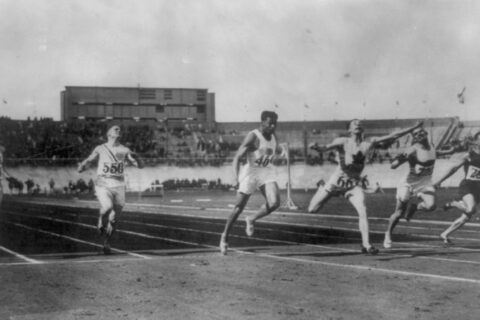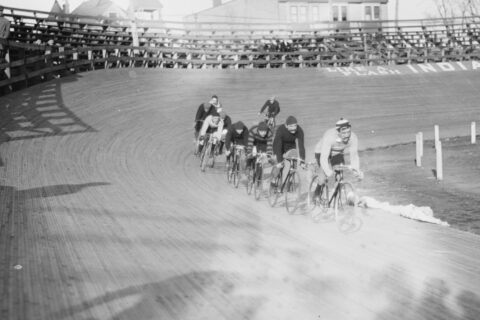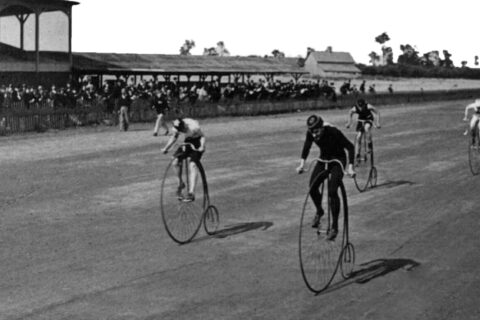Siren Seiler talks about the lessons she’s learned from life as an athlete that she’s transferring to her role as a coach.
Video Transcript
Dr. Stephen Seiler 0:02
And you talked about how you have also had to realize that even though you are out of shape, you’re still an athlete, you still need to think like an athlete. And at some point, you were kind of saying, “Well, I’m not an athlete anymore, I’m so out of shape. I’m not an athlete.” You know, frustrated. But that’s a vicious cycle. Because then as a—you’re saying, “Well, I’m not an athlete, which means I don’t have to worry about sleep, I don’t have to fuel, I don’t have to worry about eating, you know, and getting the banana in after the workout.” And we talked about this, that first, you have to think like you’re an athlete before you can then be the athlete you want to be. Would that, is that reasonable to say?
Siren Seiler 0:47
Yeah, it’s very true. I think it was my boyfriend who kind of made me think more in a, I don’t know, professional way, or like, really make me think that I can’t wait until I’m in, like, my best shape, before I start acting like a professional athlete. Like, you have to first do the basic stuff, right? Or first do the things around training, right? And also just have a good attitude towards training before you kind of make those improvements. Like, you can’t expect to just suddenly be there, you have to do the steps towards it. And that can be very hard, because for me, I didn’t always—I didn’t really understand the point of it. Like, I could do so much in training before I did all of these things around, like I had so—there was so much to do. But that was more important than, say, sleeping eight to nine hours or all of these things. But the truth is that you won’t get as much back from the training you put in if you don’t do the things around. Like, you can add more training, but if you don’t do the basic things around training, you won’t get as much improvement. And so it’s all about kind of thinking or—to be a top performer in whatever you do, like, even if you’re writing an essay for school, you don’t skip the final editing part or you check for, like, grammar errors or sentence construction and all of these things. It’s not only the message that counts—that’s the same for training, it’s not only the HIIT session you did that counts—it is also for sure the easy ones like…
Dr. Stephen Seiler 3:07
The details around it. Yeah. It’s a good point. And we hear it from the sport psychology: You’ve got to think like a champion before you become a champion. You’re already—you know, I think Kipchoge is one of your heroes, and he would—he said things along these lines that he’s always thinking like a champion or something. But you probably know his quotes better than I do. And there was a book many years ago I read called “The Warrior Athlete,” and I don’t recall the author’s name, but that always stuck out as just a mindset. Without getting too—you know, we don’t want to be—we have lives.
Siren Seiler 3:07
Yeah.
Dr. Stephen Seiler 3:07
I think of myself as an athlete, but I’m also 57, and I’m a professor, and I’m a dad, and I’m…so I—you know, I’m certainly not doing everything right, but I do try to think like you say about the eating; getting the banana in me after the workout, starting the process of recovery, or saying, “Hey, I need to get my sleep,” you know? And looking at the whole package around. And that’s certainly something we see in high performance sport is just that it is not just the training, it’s a lifestyle, and within reasonable boundaries that we—you’re going to coach your athlete to think about sleep and to think about recovery and eating and things like that. And if anybody understands the importance of food and fuel, then I think you are an athlete that understands that, with everything you’ve been through around fueling. So it gives you an anchor, mentally, to think, to remember how important that is. So, you know, you’ve used the word “professional,” which sounds scary, you know? So I’m acting like a professional if you’re training four days a week, but I don’t know, I think it’s kind of fun. It’s part of our identity, is you get to start thinking of yourself as an athlete. There’s your—the mom that you’re working with, that’s in her 60s, is she, does she think of herself as an athlete now?
Siren Seiler 5:23
Yeah, I think like—I mean, I can see the changes in people, like, from start to now and just how the interests, how their interest, kind of develops over time. Like, just even interest in training, or running shoes, and running magazines, and, like, understanding more of the process and kind of—I definitely see a change in identity. Like, they get something or they’re kind of a runner, like. And it’s cool to see, like, they get another dimension of their identity or something like that. Like, even like a hobby or a sport.
Siren Seiler 6:23
And they’re in the tribe, they’re part of the club: the runners, the cyclists, and yeah. It’s a wonderful thing.
Siren Seiler 6:32
Yeah, I think it’s very cool.
Dr. Stephen Seiler 6:35
Yeah. So we get to be part of that, or you particularly get to be part of that, and helping them discover a different side or a different part of their identity. So I think that’s a wonderful way to kind of round this off. You know, you do a lot of coaching now; I choose not to do a lot of coaching. I’m, if anything, maybe I coach the coaches, because I’m more on the, which we call it the physiology side, the knowledge side. And coaching is tough. Coaching you, for me, it was tough. And that was just one person. [laughs] But the reason it’s tough is at least because you have to—there’s the emotional side, there’s the psychology side, there’s the physiology side. I’m better at the physiology side and worse on the psychology side, and that maybe you’ve had—you think about these things, too, as a coach. What have you experienced, just the rounding out on this?
Siren Seiler 7:39
Well, I’ve always really enjoyed making training plans and from when I was like 13, I made my own yearly training plan and week-to-weeks.
Dr. Stephen Seiler 7:51
As a dancer. As a dancer.
Siren Seiler 7:52
As a dancer, yes. And I enjoy that. I really enjoy the process of working towards goals, like whether someone’s preparing for a competition or just wants to get healthier or reach a certain time goal, like, I think that’s very cool. And I really like to have that. I think it gives just life, in general also, more meaning when we kind of work towards something. And if that’s sports, that’s very cool. And to help be able to help with that process is very fun. But what I’ve realized, to be a coach and to be just a physiologist or behind the scenes, it’s very different…and someone who has a lot of knowledge and kind of knows the turning process or everything kind of down to the cellular level doesn’t necessarily mean that they can interact with another human being and teach these fundamental things or teach the training process if you don’t know the athlete or know how humans work, because we’re not machines. And I think that’s a very good point, that if a coach needs to—just needs to know the physiology and have the knowledge, like in sport science, I think that’s very important. It’s not all about experience and traditions, it’s also about kind of seeing a little bit of…
Dr. Stephen Seiler 9:34
Knowledge?
Siren Seiler 9:40
Success and knowledge and facts. But also you have to be able to adapt the science to an athlete because it’s not like you can take what a review article says, or a research study says and apply that to your training without thinking more often—even if it’s supposed to be the ideal thing—doesn’t necessarily work. So I think that’s very important to kind of think of training as easy in a way. Because it is really about doing or making moving and exercising into a sustainable habit, and doing it in a way that is fun, and making yourself, like, goals, which helps in the process of making it sustainable. And, yeah, the basic things, I think, to finish, is just like my dad says, like, first frequency, and then duration, and then intensity. These three things, like, in that order, I think is kind of a way to make it sustainable. And starting this small, not try to do too much at the same time.
Dr. Stephen Seiler 11:14
There you go stealing my thunder. This is what happens when I let my daughter come on [laughs], she ends up upping me. But no I, obviously I agree. And then if I was going to finish up, I would say that from what you’ve said, too, that, number one, yeah, the things we’ve learned from these high performance athletes, it does scale down. And it’s okay to think of yourself as an athlete. Even though you have a job and kids and responsibilities and you don’t get paid to be an athlete, we can think of ourselves as an athlete and even dare, to use the term a little bit, this professional or the warrior athlete; the mentality of, “It’s not just the training, but it’s just the way I live.” That’s a wonderful kind of thing. And then the only little caveat we would give our athletes and clients and people we talked to is give them permission to be human, and that things happen. And give them permission to drop that workout. And that’s part of being an athlete, too. Is that a fair way to round it up?
Siren Seiler 12:28
Yeah.
Dr. Stephen Seiler 12:28
Sum it up?
Siren Seiler 12:29
Definitely. And not just for—that, I think applies to athletes of every single level. Like the very best in the sport. It’s not like they are machines and can do the training.
Siren Seiler 12:47
They have bad days too.
Siren Seiler 12:50
For sure.
Dr. Stephen Seiler 12:51
The best in the world have bad days. And there’s nothing I appreciate more than having great athletes telling me, “You know what? I’ve had a bad day or a bad month or bad COVID or whatever,” just to remind everyone that they’re not superhumans.
Siren Seiler 13:06
No, that’s true.
Dr. Stephen Seiler 13:08
So with that, we will say goodbye to each other from the kitchen and the office here in Norway. And hopefully something here we’ve talked about is useful to both coaches and athletes and often we’re kind of a little bit of both.



